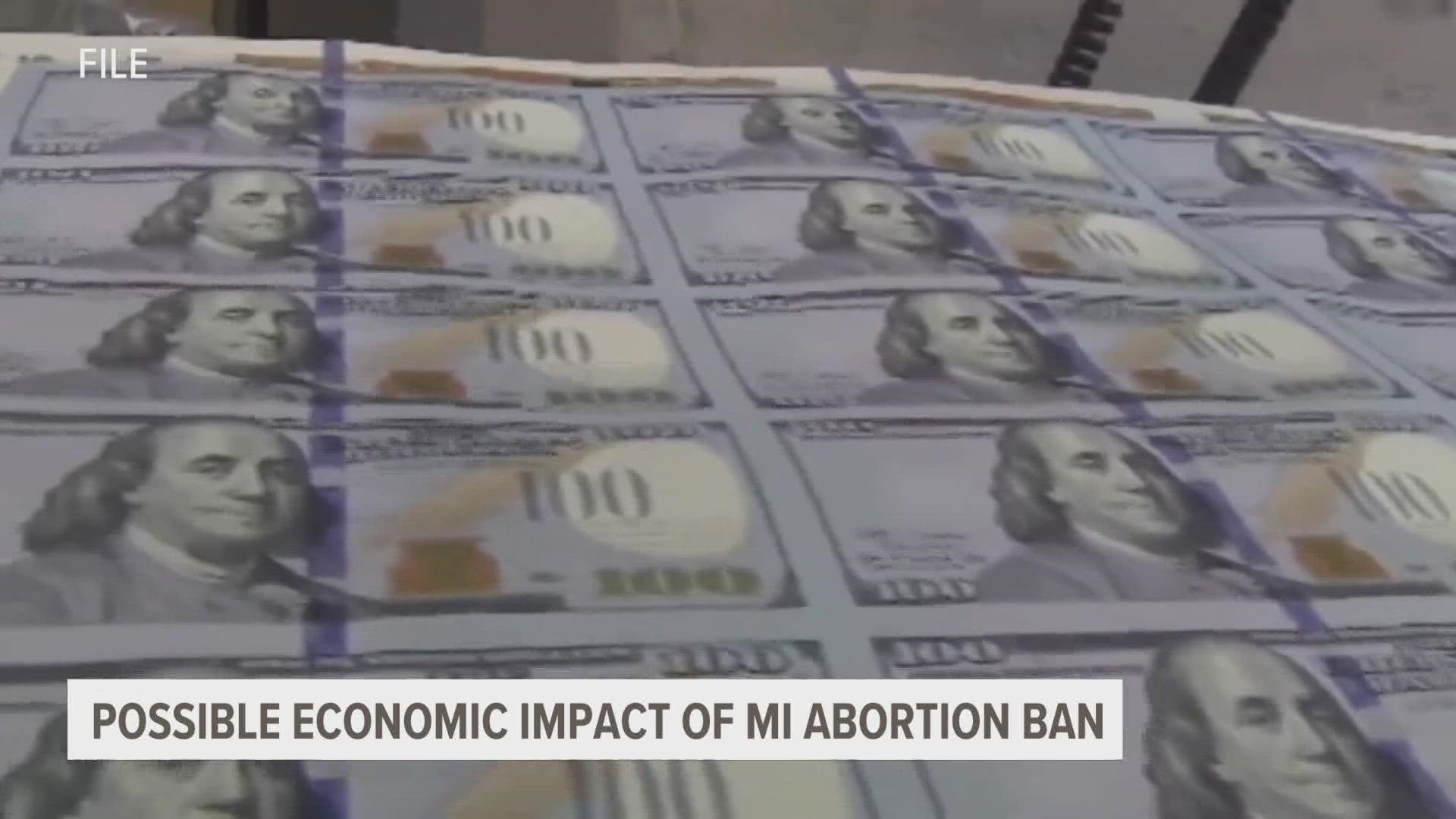MICHIGAN, USA — If Michigan courts decide to reinstate the 1931 law banning abortion, some local business owners and leaders say it will have a negative impact on the economy.
Some say an abortion ban will only make the current labor shortage worse while others believe children and families are a driving economic force.
Abortion is legal right now in Michigan and Hannah Schultz with People First Economy, a non-profit organization helping out small business owners says some worry about their bottom line if that changes.
"With the challenges to afford products and services and all the things that it takes to run a business, not to mention paying a reasonable wage to your employees, there's not very much wiggle room to provide additional benefits to employees, there's not much wiggle room to provide a good living wage," Schultz says.
It's not just about providing for employees and their healthcare. It's about keeping a full staff, which can be challenging if people cannot find affordable childcare and need to leave work in order to stay home.
"If we are forcing more women to give birth, then we're going to continue seeing that (labor) shortage without addressing the issues that are causing that shortage," Schultz says.
State Senator Winnie Brinks agrees and believes that can contribute to Michigan's declining population.
"When we get things like this that are really an encouragement for people to move away, that's working against our best interest," Brinks says.
"I think that having children is a good economic boost for most countries," Right to Life Michigan Legislative Director Genevieve Marnon says.
Marnon says legal abortion hasn't helped the economy.
"We've had 50 years of legalized abortion, and yet, poverty is still pretty, pretty prevalent, and pretty stubborn," she says, adding that we're currently feeling the effects of nearly 50 years of legal abortion.
"You look around and every single store has a help wanted sign, while it looked back 20 years ago, and we you know, we aborted 20% of our entire would have been newborn population, right?" Marnon says. "And it's now having an impact on our economy with the lack of workers."
Both Brinks and Schultz agree more workers is not the solution.
"You won't see those workers for about 18 years. And, you know, that's simply not the solution to our economic issue," Brinks says. "Any economic success that someone might, that a community might experience from this really could come at the expense of women, could come at the expense of of, as you mentioned earlier, the households that are having a much more difficult time making ends meet. And it could disproportionately impact brown and black people and that's simply not okay."
All three agree employers do need to consider more family-friendly policy changes like expanded healthcare and childcare. That includes maternity and paternity leave.
►Make it easy to keep up to date with more stories like this. Download the 13 ON YOUR SIDE app now.
Have a news tip? Email news@13onyourside.com, visit our Facebook page or Twitter. Subscribe to our YouTube channel.

